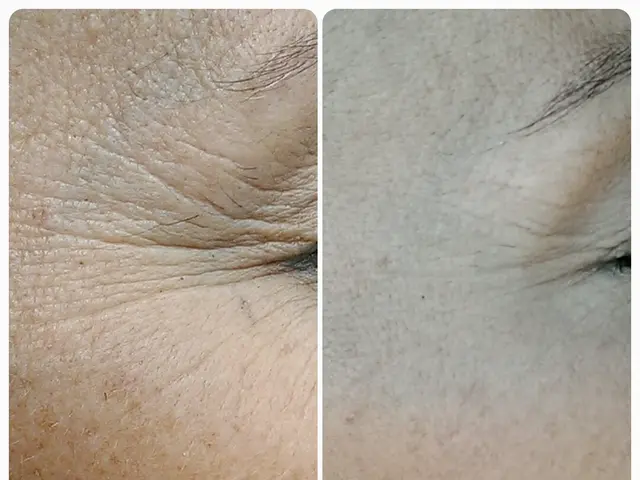Impact of Terahertz Radiation on Human Body Hydration Levels
Terahertz Radiation Technology Pushes Boundaries in Biomedicine, Sparks Concern Over Physiological Impact
Recent progress in terahertz (THz) radiation technology, as shown in developments at TU Wien for detecting water vapor in biomass gasification plants, has reignited interest in the potential influence of electromagnetic fields on human physiology. While this technology promises to revolutionize various industrial processes, questions linger about its impact on the human body, specifically as it pertains to body water content.
Terahertz Radiation and Molecular Interactions
Terahertz radiation exists in the frequency spectrum between microwaves and infrared waves. The unique property of this radiation lies in its sensitivity to water molecules, due to their polar nature and hydrogen bond network, which resonates with terahertz frequencies. As the human body composes of a large amount of water, it is highly susceptible to THz absorption.
The Biological Implications
Research suggests that THz radiation penetrates several millimeters of low water content tissue, reflecting back and enabling the detection of variations in water content and density. This feature, endorsed for medical imaging due to its precision, raises concerns regarding potential disruptions in the body's water balance and cellular processes.
A strong interaction between THz waves and biological water molecules may potentially compromise cellular functions or alter hydration levels. Notably, the effect of THz radiation on bacteria has been a point of interest in recent years.
The Impact on Bacteria
Studies have shown that THz radiation can significantly impact bacterial cells, influencing their morphology, metabolism, and ability to form biofilms. A 2018 investigation published in Scientific Reports found that exposure to THz radiation altered the structure and metabolic activity of E. coli bacteria. Findings include:
- An increase in cell membrane permeability, affecting the bacteria's internal water regulation.2. A reduction in metabolic activity, as evidenced by decreased glucose uptake.3. Impaired ability to form biofilms, potentially affecting their survival and colonization capabilities.
These observations suggest subtle yet significant impacts on microbial life, despite minimal cell death. The altered water dynamics within bacterial cells due to THz exposure may have repercussions for the human microbiome, given the critical role of these microbial communities in human health.
Current Research and Insights
Although apprehensions about the biological effects of THz radiation are growing, research has not conclusively established adverse effects from low-power exposure. Nevertheless, the absence of definitive evidence does not preclude the possibility of long-term or subtle effects that could go unnoticed.
Perspectives for Future Technological Advancements
As THz technology evolves and finds applications in biomedicine, telecommunications, and industrial processes, understanding its biological implications becomes increasingly pertinent. The potential for this technology to influence the human body's water content, even minimally, necessitates careful deliberations and continuous research.
Closing Remarks
Advances in THz radiation sources, such as at TU Wien, signify significant strides in technology. Yet, these advancements underscore the significance of comprehensive studies on the interaction between THz radiation and biological systems, particularly regarding its effects on human body water content. As this technology gains traction, understanding and managing any potential risks will be vital for safe and responsible application.
- The potential influence of terahertz (THz) radiation on human physiology, specifically regarding body water content, is a growing concern, given its ability to interact with water molecules in biological systems.
- Studies have demonstrated that THz radiation can significantly impact bacterial cells, affecting their metabolism, cell membrane permeability, and ability to form biofilms, which could have repercussions for the human microbiome and overall health-and-wellness.
- As terahertz technology continues to develop, particularly in the field of biomedicine, it is essential to conduct further research into the technology's biological implications and potential effects on various medical-conditions, ensuring the safety and wellbeing of individuals in the context of health-and-wellness and technology.







